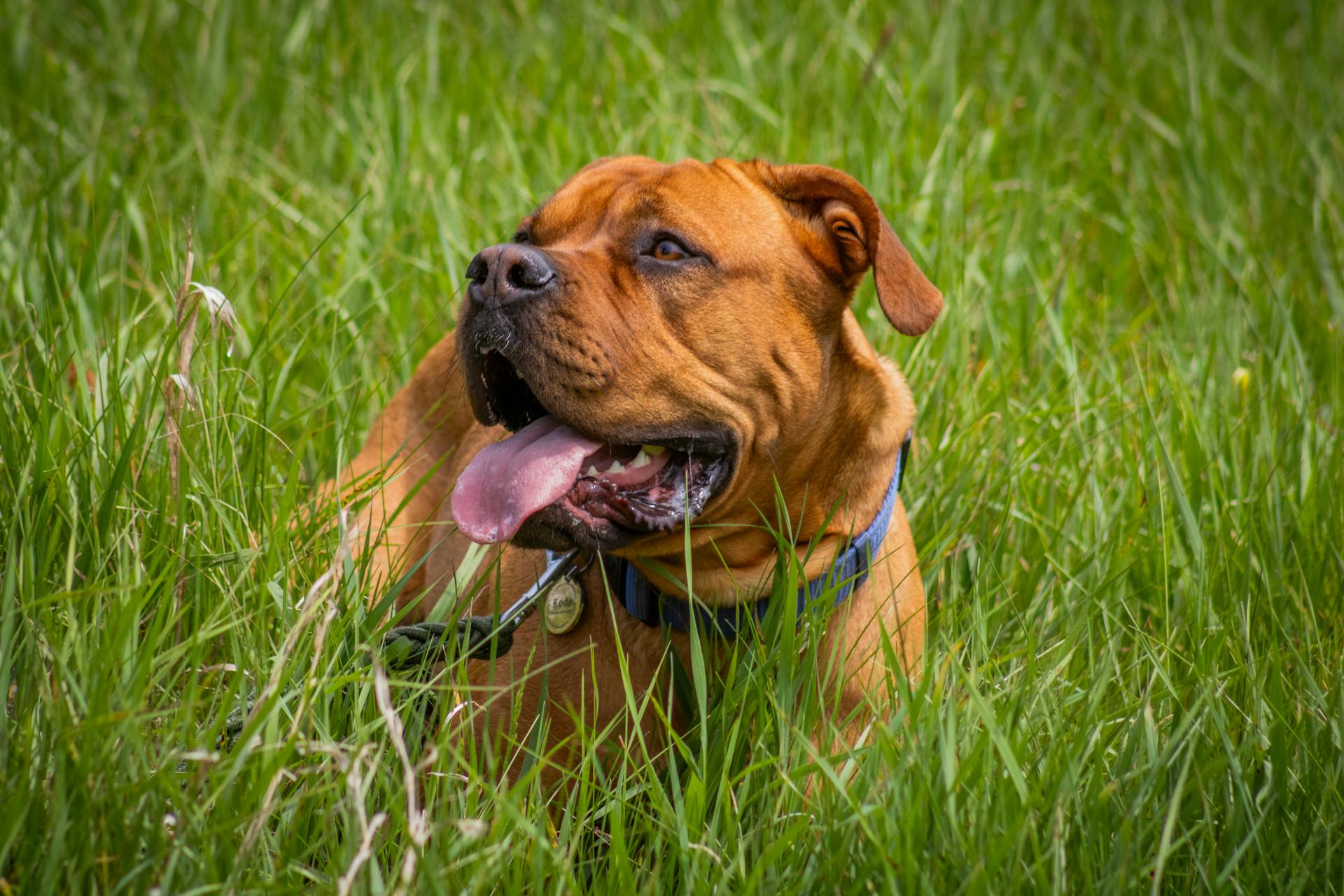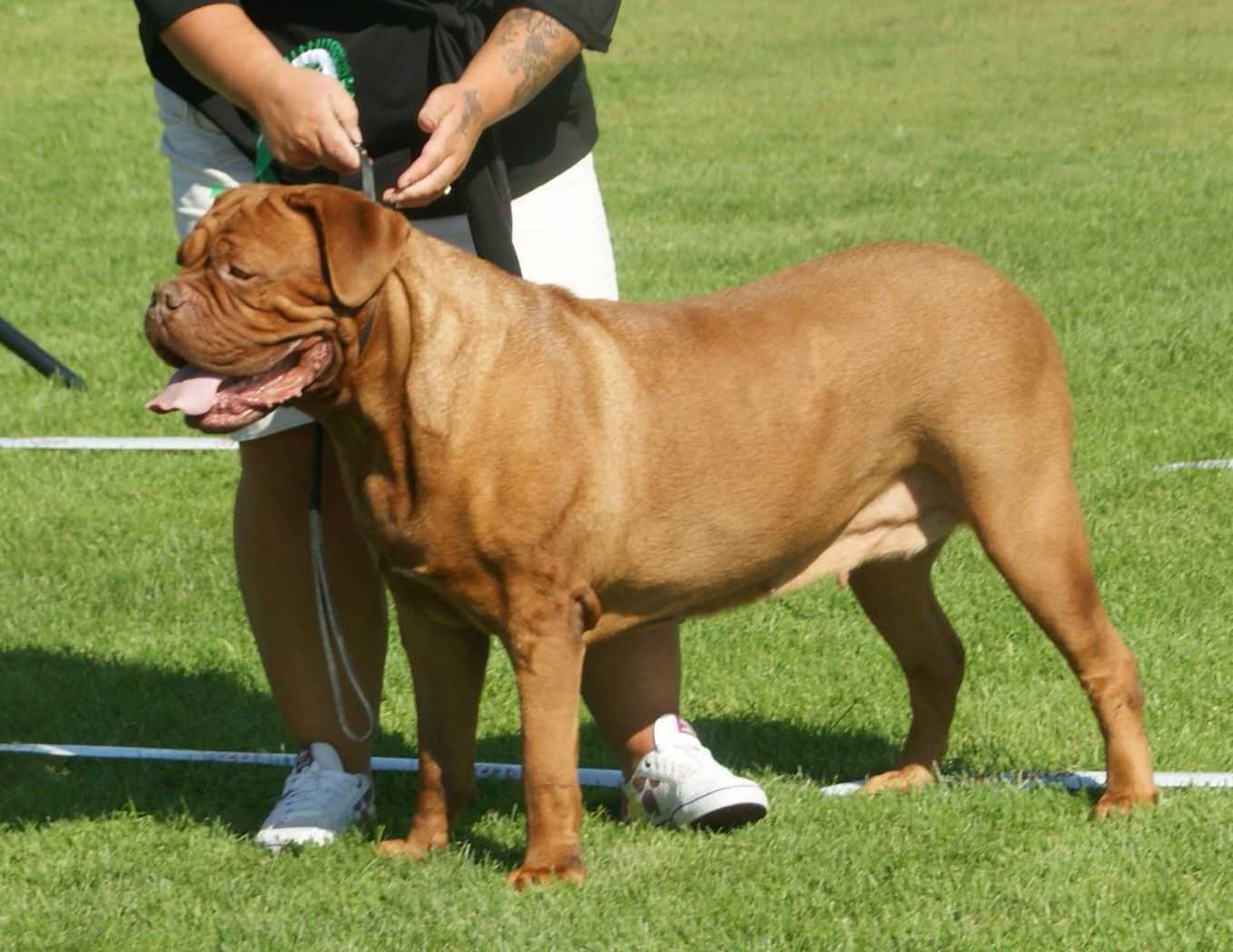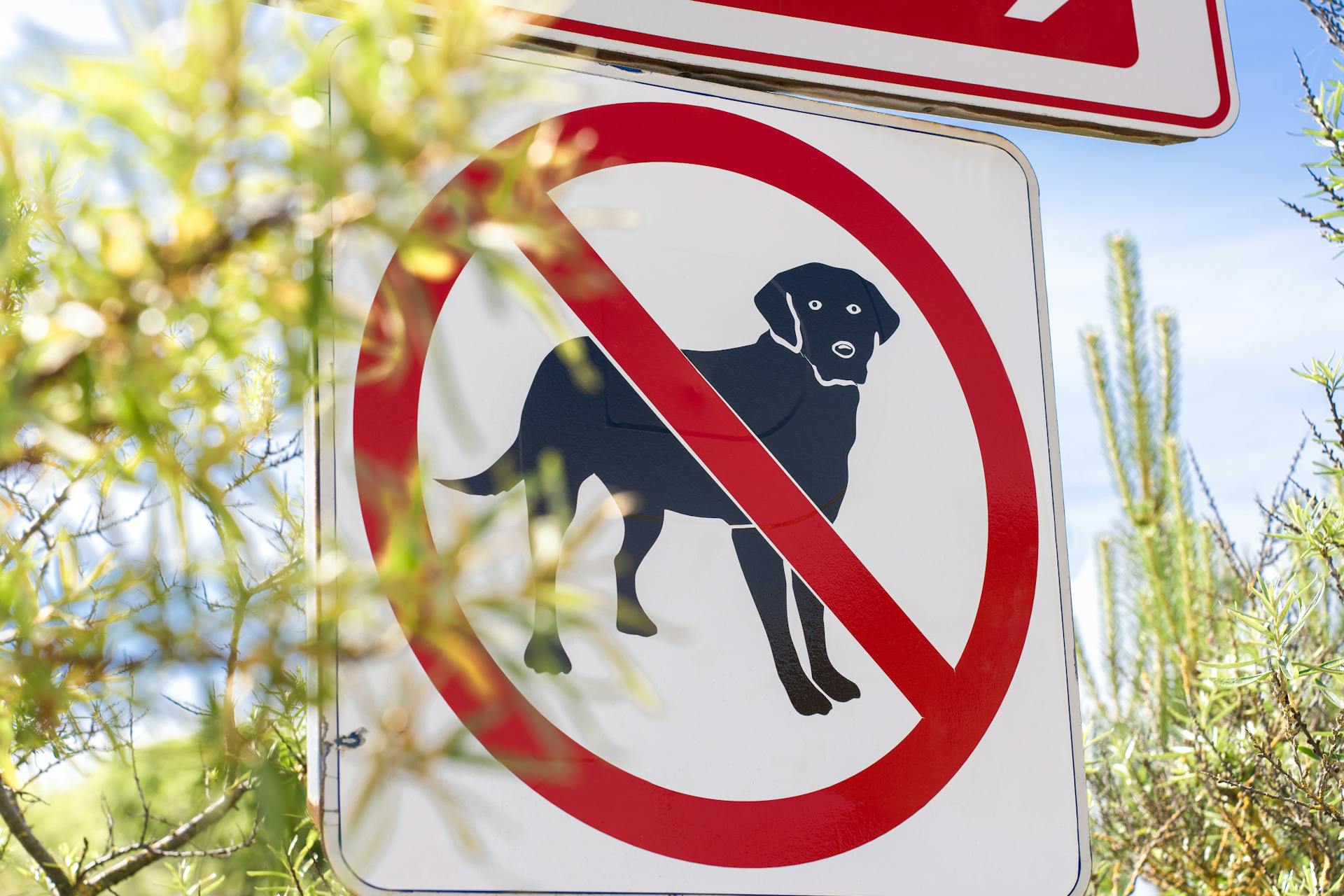
The Dogue de Bordeaux is a majestic breed with a rich history and unique characteristics. On average, their lifespan ranges from 5 to 7 years.
This relatively short lifespan can be attributed to various health issues that affect the breed, such as hip dysplasia and heart problems. The risk of these conditions increases due to their large size and deep chest.
Despite these challenges, with proper care and attention, many Dogue de Bordeaux have been known to live into their early teens. Regular exercise, a balanced diet, and regular veterinary check-ups can go a long way in ensuring your furry friend lives a happy and healthy life.
Health and Care
The Dogue de Bordeaux is a breed with some unique needs when it comes to health and care.
This breed can be prone to certain health problems, including cancer, heart disease, and gastric dilation/volvulus (bloat). Regular veterinary check-ups are crucial to catch these issues early on.
One of the most significant health concerns for Dogue de Bordeaux is their relatively short lifespan. With proper care, they can live up to a certain age, but it's essential to be aware of potential problems that may arise.
Here are some common health issues to watch out for in the Dogue de Bordeaux breed:
- Cancer: This breed is prone to developing canine lymphoma.
- Heart disease: Many dogs of this breed die from heart diseases, including dilated cardiomyopathy and sub-aortic stenosis.
- Gastric dilation/volvulus (bloat): A medical emergency that requires immediate attention.
- Hip dysplasia: Abnormal development of the hip joint.
- Elbow dysplasia: Genetic disorder causing abnormal growth in joints.
- Hereditary footpad hyperkeratosis: Hardened and thickened skin on the paws.
By being aware of these potential health issues, you can take steps to prevent or manage them, ensuring your Dogue de Bordeaux lives a happy and healthy life.
Common Health Problems
As a Dogue de Bordeaux owner, you're probably aware that this breed can be prone to certain health issues. One major concern is cancer, specifically canine lymphoma, which affects the formation of white blood cells and is usually treatable with a good prognosis.
Dogue de Bordeauxs are also at risk for heart disease, including dilated cardiomyopathy and sub-aortic stenosis, both of which can be life-threatening if left untreated. Responsible breeders work to minimize this risk by breeding dogs that meet high standards.

Gastric dilation/volvulus, or bloat, is another serious condition that can occur in Dogue de Bordeauxs. This happens when gas builds up in the stomach and causes it to twist, leading to a medical emergency.
Hip dysplasia is a common issue in this breed, where the hip joint doesn't form properly, leading to arthritis and mobility problems. Elbow dysplasia is also a concern, as it can cause pain and lameness if left untreated.
Hereditary footpad hyperkeratosis can cause painful cracks in your Dogue's paw pads, making walking difficult and increasing the risk of infection. Skin issues are another common problem, particularly with skin folds, so be sure to keep an eye out for signs of irritation or infection.
Here are some specific health conditions to watch out for:
- Cancer: Canine lymphoma
- Heart disease: Dilated cardiomyopathy and sub-aortic stenosis
- Gastric dilation/volvulus (bloat)
- Hip dysplasia
- Elbow dysplasia
- Hereditary footpad hyperkeratosis
- Skin issues: Dermatitis and skin infections
Care
The Dogue de Bordeaux can be a handful if you don't have a secure garden - they're jumpers and will make a break for it if given the chance.

Exercise is crucial to keep them happy and healthy, but owners need to be dedicated to managing their exercise needs.
They're not great with smaller animals like cats due to their strong instinct to chase.
Training can help prevent problems, but it's no guarantee - they can be stubborn at times.
If you have young children or vulnerable adults in the household, a Dogue de Bordeaux might not be the best fit - they're big and strong, and accidents can happen easily.
Exercise and Training
Exercise and training are essential for a Dogue de Bordeaux's overall health and well-being.
Daily exercise should last about 45 minutes, which can be broken down into one long walk or several shorter walks. This large breed dog needs room to play and move around.
A comfortable pace is crucial when walking your Dogue, as they may be prone to orthopedic problems if overexerted.
To provide mental stimulation and exercise, consider activities like short hikes, agility training, swimming, fetch, and scent work.
Proper leash training is vital for controlling your dog's strength and keeping them safe while outside. Positive reinforcement techniques are best for this breed, which can be stubborn at times.
This intelligent breed responds well to reward-based training and socialization from an early age. A confident puppy with a wide range of experiences will grow into a friendly pet.
- Short hikes
- Agility
- Swimming
- Fetch
- Scent work
A well-socialized Dogue de Bordeaux is less likely to develop destructive behavior when left alone for short periods, but they shouldn't be left unattended for more than four hours.
Dog Exercise Needs
The Dogue de Bordeaux is a breed that needs regular exercise to stay happy and healthy. A minimum of 45 minutes of daily exercise is recommended, which can be broken down into one long walk or several shorter walks.
These dogs love to play and need room to run around, making them unsuitable for apartment living unless you have a large yard. They enjoy activities like short hikes, agility training, swimming, fetch, and scent work.
However, it's essential to remember that this breed can be prone to orthopedic problems, so walks should be at a comfortable pace rather than vigorous. This will help prevent injuries and keep your dog happy and healthy.
To avoid overheating or breathing issues, which are common in brachycephalic breeds like the Dogue de Bordeaux, make sure you understand your dog's endurance level before taking them on a walk.
Here are some exercise ideas for your Dogue de Bordeaux:
- Short hikes
- Agility training
- Swimming
- Fetch
- Scent work
Aim to provide at least an hour of exercise every day, including playtime and training. This will help keep your Dogue de Bordeaux happy and prevent obesity, which is a common issue in this breed.
How to Train a Dog
Training a Dog is essential for their well-being and your own safety.
The Dogue de Bordeaux is an intelligent breed that responds well to positive, reward-based training. They can be strong-willed at times, so consistency and persistence are key.
Leash training is crucial to control your big dog while outside, keeping them safe and under your control. Your dog should walk next to you without pulling.
Positive reinforcement techniques work best for this breed, which can be stubborn and challenging to train. A well-trained Dogue de Bordeaux will make a wonderful pet.
Socialization from an early age is vital to ensure your Dogue develops into a great pet with good manners. Pick a puppy with a confident temperament, as some families in the breed may be more prone to being nervous.
Training should start as soon as possible after getting a Dogue de Bordeaux, ideally from an early age, and should not exceed four hours of leaving them alone at a time.
Frequently Asked Questions
Why is Dogue de Bordeaux's lifespan so short?
Dogue de Bordeaux's lifespan is short due to its predisposition to health issues such as heart problems, orthopedic issues, gastric torsion, and heatstroke. This leads to a tragically short average lifespan of 6-8 years, although some individuals may live up to 10 or 11 years with proper care.
What is the oldest living Dogue de Bordeaux?
According to records, the oldest Dogue de Bordeaux was 12 years old. This remarkable age highlights the importance of proper care for this breed.
Is 8 old for a Dogue de Bordeaux?
Typically, an 8-year-old Dogue de Bordeaux is considered middle-aged, as their average life expectancy is around 9 years. However, individual lifespan can vary depending on various factors such as diet, health, and genetics.
Is 8 old for a Dogue de Bordeaux?
Typically, an 8-year-old Dogue de Bordeaux is considered middle-aged, as they have a relatively short lifespan of 5-8 years. At this age, your dog may be entering their senior years and require regular health checks to ensure a happy and healthy life.
What is the lifespan of a female mastiff?
A female Mastiff's average lifespan is 6-10 years. Responsible breeding practices help ensure healthier puppies, but giant-breed dogs like Mastiffs often face unique health challenges.
Sources
- https://www.thesprucepets.com/breed-profile-dogue-de-bordeaux-1117962
- https://www.pdsa.org.uk/pet-help-and-advice/looking-after-your-pet/puppies-dogs/large-dogs/dogue-de-bordeaux
- https://biologydictionary.net/dogue-de-bordeaux/
- https://www.yourdog.co.uk/dog-breeds/dogue-de-bordeaux-dog-breed-profile/
- https://www.myfamilyvets.co.uk/dogue-de-bordeaux-breed-guide
Featured Images: pexels.com

